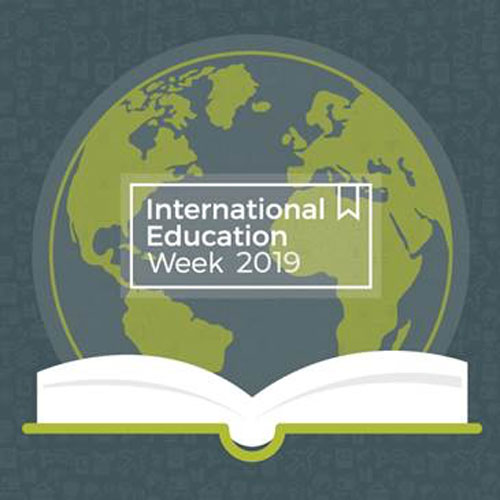November 18, 2019
Office of International Programs presents Fulbright Australia Scholars Panel Nov. 20

The Office of International Programs will present the Fulbright Australia Scholars Panel highlighting research findings from Kate Dolan, professor at the University of New South Wales, and Joyce Wu, research fellow at the Crawford School of Public Policy and visiting fellow at the School of Sociology at the Australian National University. Carol Shanklin, dean of the Graduate School and professor of food, nutrition, dietetics, and health, will serve as moderator.
The panel will be 3:30-4:30 p.m. Wednesday, Nov. 20, in the Wayne Franklin Conference of the Leadership Studies Building, Room 201.
Presented as part of International Education Week, this presentation provides an opportunity to meet and engage with two of the Australia Fulbrighters currently on campus and learn about the fascinating research they are conducting.
Dolan will present "The impact of solitary confinement on health and behaviour."
Solitary confinement was introduced as an alternative to physical punishment such as hanging. Quakers supported it as it was meant to provide a prisoner with solitude "to reflect on his misdeeds" and restore his relationship with God. Today in the U.S. though, some 80,000 inmates are held in solitary, often for very minor acts and for long periods, decades even. This practice has been severely criticized for having detrimental psychological effects and, in some cases, constituting torture. Inmates who have been held in solitary are more likely to return to prison than other inmates.
Dolan leads the Program of International Research and Training at the University of New South Wales, Australia. She has completed 90 studies, has 220 publications and received $23 million in research funds. She has been a consultant for the International Narcotics Control Board, the United Nations and the World Health Organisation. She received a Winston Churchill Fellowship to study managed alcohol programs.
Wu will present,"Equity, Diversity and Inclusion: Key ingredients for academic excellence?"
Increasingly, universities around the world are focusing on how and what they do in terms of equity, diversity and inclusion policies, procedures and activities. The key challenges for such efforts include being genuine, sustained and avoid the pitfalls of lip service. Using K-State as a case study, my research looks at how initiatives, especially those driven by the grassroots level, can promote a better campus climate and help us to rethink traditional understandings about academic excellence.
With both practitioner and research background in international development, Wu has worked in countries including Afghanistan, China, Bangladesh, India, Indonesia, Nepal, Myanmar, Pakistan and the Pacific. Wu's interest in how equity, diversity and inclusion can be integrated into research came about from years of working on gender issues in the development sector, as well as with STEM organizations. Currently, Wu is working on Individual Deprivation Measure, a research project which takes a gender-sensitive and intersectoral approach to understanding the multidimensional aspects of poverty.
